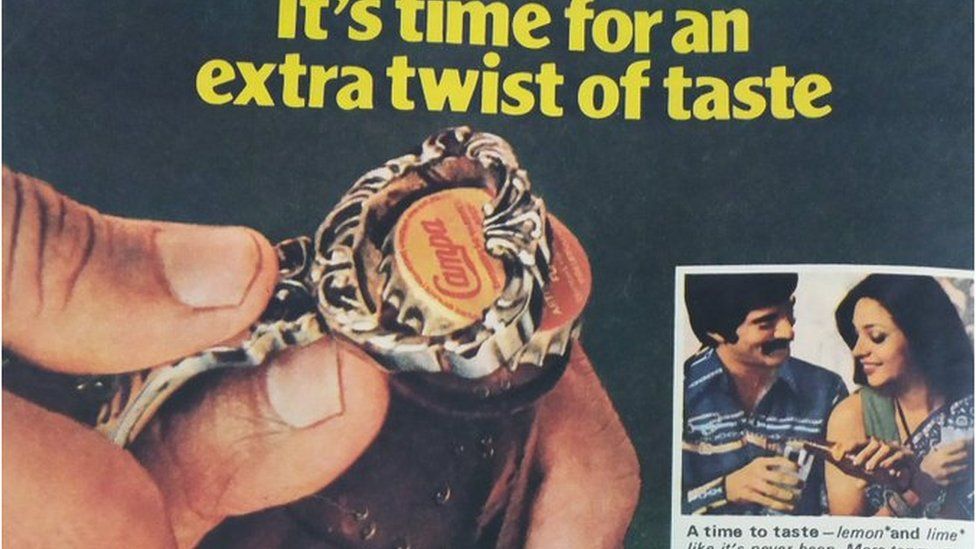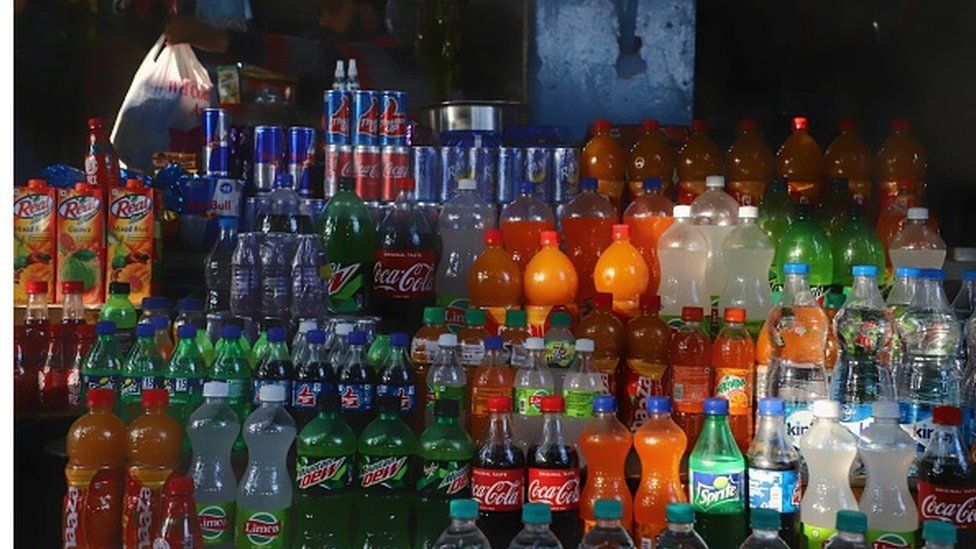
Indian billionaire Mukesh Ambani’s Reliance Group is set to relaunch an iconic 50-year-old beverage brand, Campa Cola, this summer.
It bought the brand from its makers, Pure Drinks, last August for 220 million rupees ($26,80,882; £22,48,342).
The soda will be offered in cola, lemon and orange flavours.
The drink was popular in the 1970s and 80s, but fizzled out after foreign cola brands entered the market.
A Reliance spokesperson told The Times of India newspaper that the company hopes to “inspire consumers across generations to embrace this truly iconic brand”.
Campa Cola’s (originally spelt Campa-Cola) story in India began where Coca-Cola’s story ended.
Coca-Cola, which entered India in the 1950s, was the most popular soft drink brand in the country till the 1970s.
A change in government policies in 1977 required Coca-Cola to dilute its equity stake in its Indian firms and also reveal the “secret formula” of its concentrate to them.
Not wanting to do this, Coca-Cola pulled out of India. To fill up the vacuum created by the brand’s absence, a government-owned company launched Double Seven (77), but the drink didn’t find many takers.

Pure Drinks, Coca-Cola’s main bottler in India, seized the opportunity to launch a soda of their own.
It was called Campa Cola and used the same Coca-Cola font. The homegrown soft drink brand quickly established itself as the drink for young people.
The brand’s advertisements had a youthful appeal, memorable taglines and a strong nationalistic connect. Its punchline “The Great Indian Taste” is still remembered and associated with the brand.
In one of its ads, a group of youngsters sailing on a yacht – and starring Bollywood actor Salman Khan – can be seen sipping on the drink as a catchy jingle plays on in the background.
Campa Cola’s print ads were just as playful and peppy, and often emphasised celebrating togetherness. One ad bills it as the beverage to sip on during “Times of fun” and “Times of joy”.
The fizzy drink soon became an instant hit with children and teenagers and was a staple at birthday parties and family outings.
However, some still felt that the drink didn’t match up to its predecessor. In a 2018 story in interview with The Print, ad filmmaker Alyque Padamsee called it an “imitation brand”.
“Campa tasted good – because we didn’t have any other options,” the The New York Times quoted columnist Santosh Desai as saying in a 2009 article about the brand.
But despite its popularity among the youth, the brand began to fizzle out in the late 1990s after the then finance minister, Manmohan Singh, introduced reforms to liberalise India’s economy.
The changes made it easier for foreign brands to do business in the country and Coca-Cola re-entered the market.
Pepsi and Coca-Cola would overtake Campa Cola with an aggressive marketing campaign and sprawling distribution network.
The soft drink brand shut down its bottling plants in capital Delhi in the 2000s and soon, the drink disappeared from shops and stalls.
BBC News India is now on YouTube. Click here to subscribe and watch our documentaries, explainers and features.

Read more India stories from the BBC:

